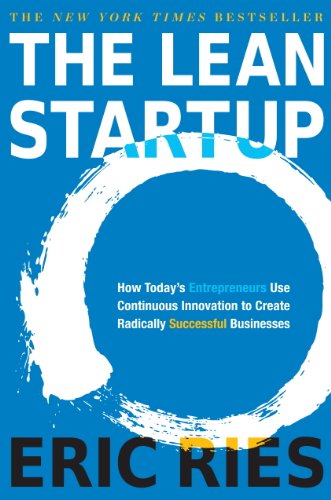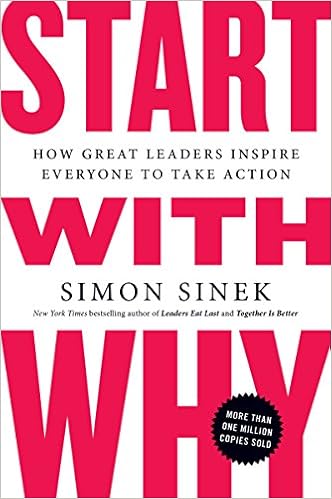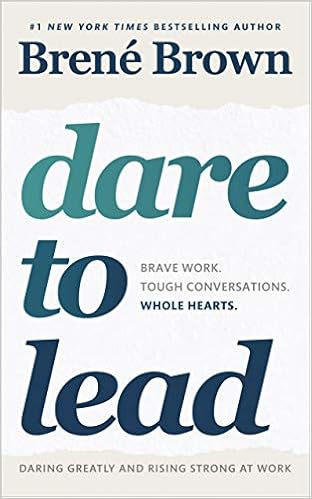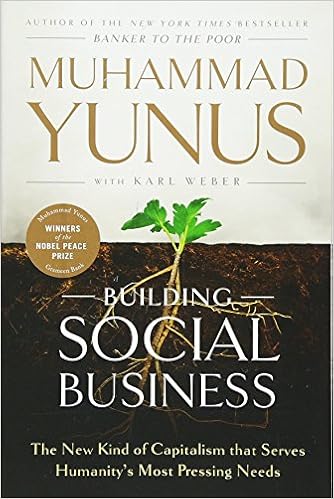“First, give yourself permission to be a contrarian, to flout convention, to follow the unsafe path, to zig when everyone else zags; then, take some action to get going. Allow yourself to try; then try.”
–Linda Rottenberg, Co-Founder of Endeavor
We can’t solve our problems by using the same thinking that created them, and that’s why we need people like you to bring your innovative ideas to life. The books linked below will help you better understand social entrepreneurship, and how you can bring your ideas to life with concrete tools and methods.
Looking for a more interactive way to learn leading social impact frameworks? Check out our MovingWorlds Institute Global Fellowship.
1. Measure What Matters: How Google, Bono, and the Gates Foundation Rock the World with OKRs by John Doerr
To help you set and stay accountable to goals that will actually move your business forward (because you can’t do everything.)
Why we like it: The OKR (Objectives & Key Results) goal-setting system helps focus effort on your company’s most important work, foster coordination, and keep employees on track. There are only so many things you can do each day, and being an entrepreneur means that your to-do list is never-ending. The OKR system will help you spend the time you do have on things that really matter. Using behind-the-scenes case studies, Doerr brings the magic of OKRs to life in a way that makes it easy for your company to do the same.
2. The Last Mile: Creating Social and Economic Value from Behavioral Insights by Dilip Soman
For when you’re putting a lot of effort into marketing, but not getting results.
Why we like it: Most organizations focus on marketing their product or service, but don’t see the results they want because they ignore the crucial “last mile” – where consumers come to their website, store, or sales representatives and make a choice. Solman shows how to use insights from behavioral science to close that gap. Even if you’re new to the field of behavioral science, this book is full of solid, concrete advice on how anyone can put the lessons of behavioral science to work to grow your company.
3. Good Economics for Hard Times by Abhijit Banerjee & Esther Duflo
To give you the context you need to effectively work towards solving today’s economic and social problems.
Why we like it: Immigration and inequality, globalization and technological disruption, slowing growth and accelerating climate change—these are sources of great anxiety across the world. The resources to address these challenges are there, but what we lack are ideas that will help us jump the wall of disagreement and distrust that divides us. To create solutions, we must first understand the problem, and that’s exactly what this book will help you do. Written by renowned MIT economists, Good Economics for Hard Times uses sound research into real-life situations to help you appreciate and understand our precariously balanced world.
4. The Lean Startup: How Today’s Entrepreneurs Use Continuous Innovation to Create Radically Successful Businesses by Eric Ries
To help you test your vision and continue to hone it based on the actual market, without wasting resources.
Why we like it: You may have heard the statistic that 90% of startups fail. Inspired by the lessons of lean manufacturing, The Lean Startup can help you beat those odds. This book offers a new approach to building companies that are both more capital efficient and that leverage human creativity more effectively. In an age when companies need to innovate more than ever, this approach will help your company to shift directions with agility, altering plans inch by inch, minute by minute.
5. How to Change the World: Social Entrepreneurs and the Power of New Ideas by David Bornstein
For inspiration and learnings from the successful social entrepreneurs who have come before you.
Why we like it: How to Change the World intertwines personal stories, anecdotes, and analysis to show how one person can make a difference in the world (and how you can, too.) Bornstein brings the concepts of social entrepreneurship to life through case studies of pioneering social entrepreneurs whose problem-solving models are reshaping the 21st century. This book is a great place to start for anyone new to the social entrepreneurship space.
6. Getting Beyond Better: How Social Entrepreneurship Works by Roger L. Martin
To give you a more in-depth understanding of social entrepreneurship and how it works in context.
Why we like it: We know that social entrepreneurship is a powerful vehicle for social change, but to leverage it successfully we first need to understand what it is and where it’s been done well. In addition to covering the history and theory of social entrepreneurship, this book also sets forth a bold new framework and concrete lessons for those who seek to transform our world for good.
7. The Innovation Blind Spot: Why We Back the Wrong Ideas, and What to Do About It by Ross Baird
To help you better understand the venture capital side of impact investment, and how investors can recognize the ideas worth pursuing.
Why we like it: As you grow and scale your company, you might decide to raise capital through f impact investment. This book is a great primer on the state of impact investment, examining it through from the perspective of the entrepreneur, investor, government, and corporation. Baird ultimately outlines how to create long-term success through “one-pocket thinking”—eliminating the blind spot that separates “what we do for a living” and “what we really care about.
8. Start With Why: How Great Leaders Inspire Everyone to Take Action by Simon Sinek
To help you become the kind of leader who inspires action.
Why we like it: Start With Why shows that the leaders who’ve had the greatest influence in the world all think, act, and communicate the same way — and it’s the opposite of what everyone else does. Sinek calls this powerful idea The Golden Circle, and it provides a framework upon which organizations can be built, movements can be led, and people can be inspired.
9. Dare to Lead: Brave Work. Tough Conversations. Whole Hearts. by Brenee Brown
To help you cultivate a powerful and positive company culture by stepping into brave leadership that inspires courage in others.
Why we like it: Leadership is not about titles, status, and wielding power. A leader is anyone who takes responsibility for recognizing the potential in people and ideas, and has the courage to develop that potential. Brené Brown has spent the past two decades studying the emotions and experiences that give meaning to our lives, and the past seven years working with transformative leaders and teams spanning the globe. In this book, Brown uses research, stories, and examples to show how successful leaders are different, and how you can replicate them with a collection of four skill sets that are 100 percent teachable, observable, and measurable.
10. The Tipping Point: How Little Things Can Make a Big Difference by Malcom Gladwell
To help you generate ideas about how to make your idea catch on.
Why we like it: The tipping point is that magic moment when an idea, trend, or social behavior crosses a threshold, tips, and spreads like wildfire. As you develop your idea, you’ll need it to “tip” to achieve widespread adoption. In this book, Gladwell explains the science behind viral trends in business, marketing, and human behavior in an approachable way that is engaging and easy to digest. By the end, it just might change the way you think about selling products and spreading ideas!
11. The Infinite Game by Simon Sinek
To help you maintain the long-term perspective you need to stay the best company you can be.
Why we like it: Starting and scaling a social enterprise is no easy task. Unlike a finite game, which has a defined start and end, being in business is an infinite game: the rules are changeable and there is no end point. In this book, Sinek offers a framework for leading with an infinite mindset – where instead of playing to beat the competition, you’re playing to beat yourself. Leaders who embrace an infinite mindset build stronger, more innovative, companies, and this book’s perspective shift can help you stay motivated, day after day, to keep building towards a vision of the future that gives your work meaning.
12. Business Model Generation: A Handbook for Visionaries, Game Changers, and Challengers by Alexander Osterwalder
For when you’re ready to bring your idea to life and realize you need a game-changing business model to make your idea into a reality (but aren’t sure where to start.)
Why we like it: A great idea only goes as far as its accompanying business model can take it. This highly visual and engaging book takes powerful strategic ideas and tools and makes them easy to implement for your new business. You’ll learn how to systematically understand, design, and implement a game-changing business model–or analyze and renovate an old one. Along the way, you’ll understand at a much deeper level your customers, distribution channels, partners, revenue streams, costs, and your core value proposition.
13. Systems Thinking for Social Change: A Practical Guide to Solving Complex Problems, Avoiding Unintended Consequences, and Achieving Lasting Results by David Peter Stroh
To help you accomplish the transformational change you’re aiming for (without unintended consequences and actually perpetuate the problem.)
Why we like it: When we apply conventional thinking to complex social problems, we often perpetuate the very problems we try so hard to solve (like temporary shelters that ultimately increase homelessness.) To get different results, Stroh argues that we have to think differently: by using systems thinking. Full of real-world examples and concrete guidance on how to incorporate systems thinking into your problem solving, decision making, and strategic planning, this book is a highly readable, effective guide to using systems thinking to get the results you want.
14. The Broken Ladder: How Inequality Affects the Way We Think, Live, and Die by Keith Payne
To help you go beyond the typical political sound-bites to fully understand how inequality shapes our world.
Why we like it: If reducing inequality is part of your mission, this book is a must-read. Psychologist Keith Payne examines how inequality divides us not just economically, but also in terms of how we think, how we respond to stress, and even how our immune systems function. You’ll learn important new insights from research in psychology, neuroscience, and behavioral economics into how inequality changes people, as well as a corrective to the flawed view of poverty as being the result of individual character failings. Understanding how inequality shapes our world can help us better understand what drives the divides and problems we are trying to solve.
15. Building Social Business: The New Kind of Capitalism that Serves Humanity’s Most Pressing Needs by Muhammad Yunus
To help you connect the dots between succeeding as a business and having the positive impact you want.
Why we like it: Capitalism in its current form has perpetuated many global problems. But in this book Yunus illustrates how a new kind of capitalism – based on the social business – has the potential to start solving them. It includes inspiring stories and examples that bring the concepts to life, while also offering practical advice about the nuts-and-bolts of building a social business. A must-read if you’re ready to make the leap into social entrepreneurship!
16. Doughnut Economics: Seven Ways to Think Like a 21st-Century Economist by Kate Raworth
To help you not fight the system, but change the system.
Why we like it: Doughnut Economics explores the question: How can we turn economies that need to grow, whether or not they make us thrive, into economies that make us thrive, whether or not they grow? In this book, Raworth offers a radically new compass for guiding global development, government policy, and corporate strategy. It’s a great exploration of how we might reframe our economic thinking and set new standards for what economic success looks like.
17. In the Company of the Poor: Conversations with Dr. Paul Farmer and Fr. Gustavo Gutierrez
To help you develop the perspective you need to engage ethically, respectfully, and effectively when working with people who are experiencing poverty.
Why we like it: This book is a must-read for understanding how to go beyond the “charity” mindset of helping people to supporting truly transformational change in marginalized communities. (You can learn more about why our concept of charity needs to change in this piece we wrote for #CharityDay.) Drawing from the individual writings of the authors and the intersection between them, this book will help you become more effective at social justice work.
18. The Power of Unreasonable People: How Social Entrepreneurs Create Markets That Change the World by John Elkington and Pamela Hartigan
To motivate you to keep pushing against the status quo and flouting convention, no matter what the people around you think.
Why we like it: Trying to advance an innovative new idea can feel like standing alone on an island. This book will show you why that could actually be a good thing – and that you’re in good company. Through vivid stories, the authors identify the highly unconventional entrepreneurs who are solving some of the world’s most pressing economic, social, and environmental problems. By understanding these entrepreneurs’ mindsets and strategies, you’ll gain insights into how you can follow their lead and bring your own “unreasonable” ideas to fruition.
19. We Do Things Differently by Mark Stevenson
To see what the future could look like if we update our broken models with innovations that work for our modern world.
Why we like it: Old models – for education, food production, energy, just to name a few – aren’t holding up to modern challenges. It’s clear that change is needed, but what would that look like? Unlike other books on this list that offer a historical perspective, We Do Things Differently offers an inspiring look forward toward a different and better future. The book is full of engaging case studies of visionaries who have succeeded in doing something different to change the future for the better, and will inspire you to do the same!
20. The Purpose Economy: How Your Desire for Impact, Personal Growth and Community Is Changing the World by Aaron Hurst
To inspire you to take the leap into purpose-driven work and enable others to do the same.
Why we like it: Like the Information Economy, which has driven innovation and economic growth until now, Hurst argues that our new economic era is driven by connecting people to their purpose. If you feel like an outlier because the traditional corporate path isn’t working for you, this book will help you realize that you’re actually part of a growing global movement and give you confidence to take the leap.
—
Like this list? Make sure to check out our other lists of best books for personal and professional growth by following #SocentReadingList on social media.
Looking for a supportive community of forward-thinking changemakers to help you make the transition to social entrepreneurship? Check out our MovingWorlds Institute Global Fellowship, where you’ll explore your personal and professional drivers, learn leading social impact frameworks like human-centered design and systems mapping, and apply what you’re learning through a social impact project in the field.
























